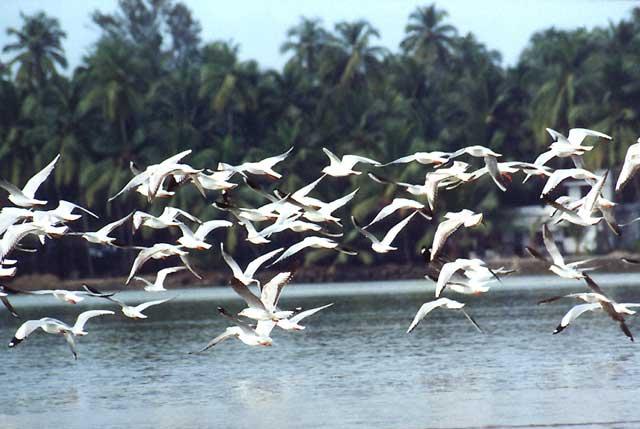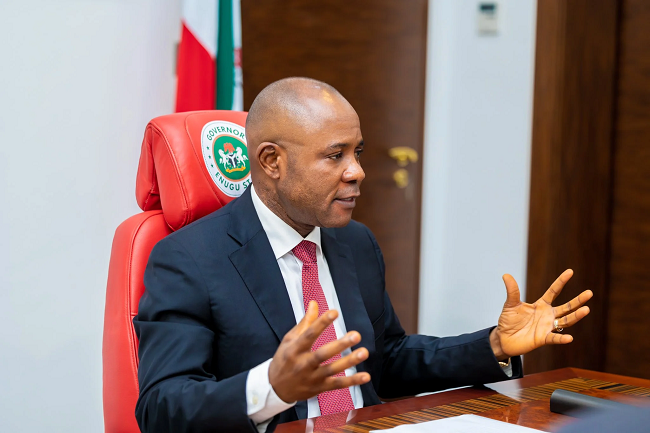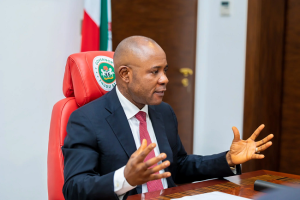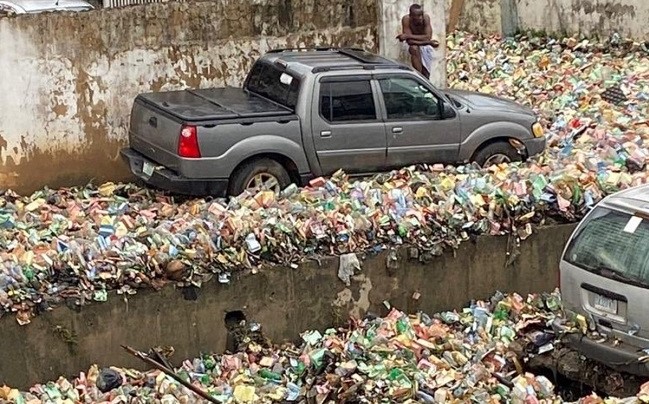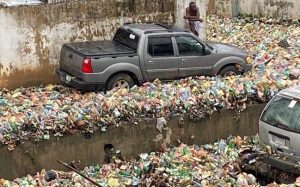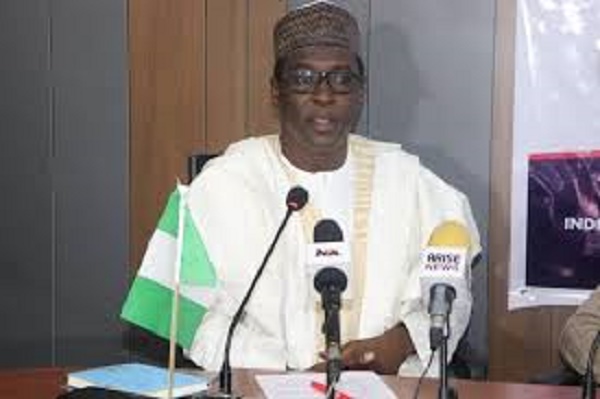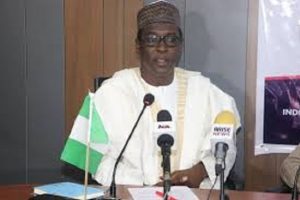On the second annual commemoration of World Migratory Bird Day 2024 on Saturday, October 12, the international campaign, organised by a network of global partners, has called for urgent and sustained action to protect both migratory birds and the insects they depend on for survival.
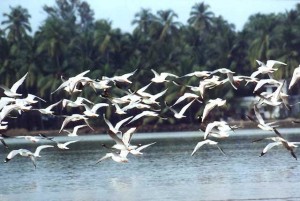
This year’s theme, “Protect Insects, Protect Birds,” emphasises the critical role insects play in the lifecycle of many migratory birds and draws attention to the alarming global decline in insect populations.
The Convention on the Conservation of Migratory Species of Wild Animals (CMS) – a biodiversity treaty of the United Nations and one of the main partners behind the World Migratory Bird Day campaign – prepared the first study of its kind on insect decline and its relevance for migratory species, which it presented at its Fourteenth Session of the Conference of the Parties (COP14) in Samarkand, Uzbekistan.
“Insect Decline and its Threat to Migratory Insectivorous Animal Populations” found that insect decline is contributing to population losses of many migratory insectivorous (insect-eating) species, particularly those which rely on them as their main source of food.
Insects are essential to the survival of not just migratory birds worldwide, but also bats and fish. Their decline could also have indirect effects by altering ecosystem functions and the habitats therein – such as changing vegetation, which in turn may provide less cover for ground-breeding species or supply less insect-pollinated fruits for frugivorous (fruit-eating) birds.
“Despite variations in magnitude across ecosystems and regions, scientific evidence revealed that without doubt, we face an insect decline on a global scale. This can be measured for example as the losses in total insect biomass or species richness over time,” said Dr David Ott from the German Leibniz Institute for the Analysis of Biodiversity Change (LIB) and one of the authors of the report.
“To deal with the effects of insect decline, we need to understand that species are part of complex, interconnected communities, and that biodiversity is essential for ecosystems to work properly and provide services to humans. The causes of insect decline are also not separate, but a mix of several connected factors,” Ott added.
Key findings of the CMS report include:
- The decline in insect biomass, abundance, and diversity poses a major threat to migratory insectivorous species, reducing food availability during migration and other stages of their lifecycles, and endangering many species monitored by CMS.
- Land-use change, climate change, and pollution are the main drivers of insect decline worldwide and these drivers are often intertwined and may act simultaneously.
- Insects and the migratory species that feed on them are important for ecosystem functioning and provide critical ecosystem services, such as pollination.
- There are still gaps in understanding the impacts of insect declines on migratory insectivorous species, with more information needed on the population status and trends for a number of species for both birds and also bats in particular.
A 2020 study published in Science magazine indicates that we are losing approximately 9 per cent of the world’s terrestrial insect population every decade. Insectivorous migratory birds such as swallows, raptors and waterbirds rely on insects and their larvae as essential food sources during their often-long migrations, breeding periods, and when feeding their young.
Many birds also time their migrations to align with peaks in insect abundance. As insect populations (estimated to be two-thirds of all terrestrial species) decrease, these birds face reduced food availability, impacting their ability to survive and reproduce. Beyond their role as a food source and their contributions to maintaining healthy ecosystems, the first-ever State of the World’s Migratory Species report published earlier this year, also emphasised the intrinsic value of insects, underscoring the urgent need to halt their decline.
To address the decrease of insect populations, the CMS report on insect decline recommends:
- Putting in place conservation measures to ensure availability of food for migratory species.
- Intensifying and supporting insect monitoring efforts and exchange of data.
- Engaging in multi-stakeholder efforts to improve habitat diversity and connectivity.
- Developing guidelines for the most urgent or prioritized actions identified to address the cascading effects of insect decline.
World Migratory Bird Day 2024
World Migratory Bird Day is an international educational and awareness-raising campaign that promotes conservation efforts for migratory birds and their journeys across borders.
The campaign is organised and coordinated by a global network of partners whose work focuses on the conservation of migratory birds across the world’s various flyways: The Convention on the Conservation of Migratory Species of Wild Animals (CMS), the Agreement on the Conservation of African-Eurasian Migratory Waterbirds (AEWA), the East Asian-Australasian Flyway Partnership (EAAFP) and Environment for the Americas (EFTA).
Celebrated on two days each year (in both May and October) to reflect the cyclical nature of bird migration and the varying peak migration periods in the northern and southern hemispheres, World Migratory Bird Day triggers hundreds of educational events around the world, united by their common goal of raising awareness and advocating for international bird protection.
Each year the campaign features a central theme, prompts action, and coordinates global efforts to safeguard migratory birds and their habitats.
Some examples of actions being encouraged through this year’s campaign include:
- Creating laws and regulations to protect insects and migratory birds.
- Planting native gardens to create suitable habitats for wildlife.
- Selecting organic products, thereby avoiding harmful pesticides.
- Reducing habitat destruction linked to property development or landscaping practice.
- Educating friends and family about the important role insects play in our ecosystem.
- Supporting educational efforts aimed at insect conservation, including promoting their conservation at the community level.
- Encouraging local to global action to maintain and restore natural habitats for insects, birds, and other wildlife.
Amy Fraenkel, Executive Secretary of the Convention on Migratory Species (CMS), said: “The alarming decline of insect populations is not just an isolated environmental issue – it is a cascading crisis that affects migratory birds, bats, and entire ecosystems. Without further research, as well as swift, coordinated global action to protect insects and their habitats, we risk losing vital species that are critical to maintaining ecological balance. The stakes are high, and this year’s World Migratory Bird Day serves as a crucial reminder of our shared responsibility to address this growing threat.”
Jacques Trouvilliez, Executive Secretary of the African-Eurasian Waterbird Agreement (AEWA), said: “For most migratory birds, insects are crucial for their survival and for their breeding success. One of the main reasons for the decline of insect populations and subsequently the decline of migratory birds is the intensive use of pesticides. Among the affected birds are the Northern Bald Ibis and the Sociable Lapwing – both AEWA endangered species featured on the global World Migratory Bird Day poster this year. The decline in insects and birds is linked to the decline in biodiversity and is part of the triple planetary crisis which also includes climate change and pollution. By protecting insects, we protect our migratory birds and the global biodiversity.”
Jennifer George, Chief Executive at the East Asian-Australasian Flyway Partnership (EAAFP), said: “Migratory shorebirds have synchronised their breeding season with the boom of insects in the Arctic. Once out of their eggs the chicks grow quickly on the insect feast. With insects declining due to the climate crisis and other factors, protecting insects is a crucial step toward protecting the birds that depend on them for survival. As the time approaches for their migration from their breeding and feasting sites, and in celebration of World Migratory Bird Day, let’s protect these young birds’ energy source – insects – to ensure their successful first migration so they survive into fully grown shorebirds.”
Susan Bonfield, Executive Director of Environment for the Americas (EFTA), said: “On this World Migratory Bird Day, we celebrate the connection between our migratory birds and the insects they rely on. From Cliff Swallows catching insects to hummingbirds feeding them to their young, it’s clear that insects are necessary for the survival of many bird species. We invite you to join us in the mission to ‘Protect Insects to Protect Birds’. Let’s advocate, educate, and unite our voices to champion the preservation of wildlife and habitats! By protecting insects, we not only protect migratory birds, but we strengthen the connections that bind us across borders.”

